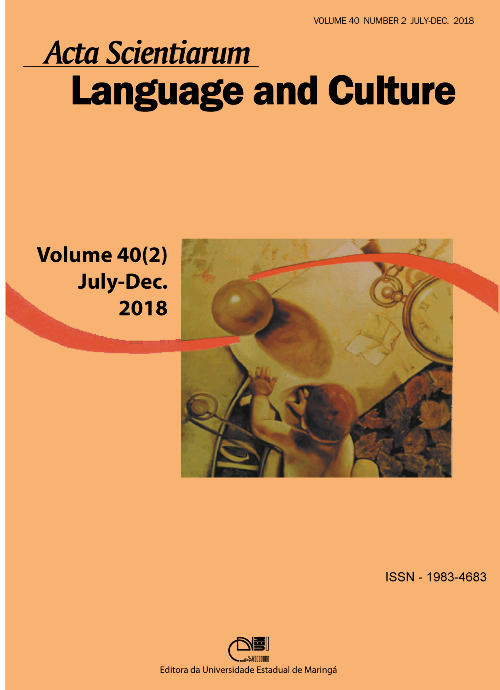<b>Literatura, memória e identidade em ‘Infância’, de Graciliano Ramos
Resumo
Este artigo propõe uma reflexão sobre a literatura e sua relação com a memória, individual e coletiva, e com a identidade. As obras literárias se valem da memória para a constituição de tramas ficcionais que nela buscam a fonte que embasa a representação da realidade. A memória, por sua vez, tem relação direta com identidades sociais e individuais, já que, por meio de sua exposição, permite a elaboração da imagem pela qual os indivíduos são representados diante de si mesmos e dos outros. O corpus deste estudo é a obra literária ‘Infância’, publicada por Graciliano Ramos, no ano de 1954, na qual o autor relata, por meio de lembranças, sua vida dos dois aos onze anos de idade. A análise indutiva da obra se guia por constructos formulados por autores como Fernando Catroga (2001), Michael Pollak (1992), Aristóteles (2005), Paul Ricoeur (1994), Kathryn Woodward (2012), os quais abordam aspectos pertinentes à literatura, à memória e à identidade.
Downloads
DECLARAÇÃO DE ORIGINALIDADE E DIREITOS AUTORAIS
Declaro que o presente artigo é original, não tendo sido submetido à publicação em qualquer outro periódico nacional ou internacional, quer seja em parte ou em sua totalidade.
Os direitos autorais pertencem exclusivamente aos autores. Os direitos de licenciamento utilizados pelo periódico é a licença Creative Commons Attribution 4.0 (CC BY 4.0): são permitidos o acompartilhamento (cópia e distribuição do material em qualqer meio ou formato) e adaptação (remix, transformação e criação de material a partir do conteúdo assim licenciado para quaisquer fins, inclusive comerciais.
Recomenda-se a leitura desse link para maiores informações sobre o tema: fornecimento de créditos e referências de forma correta, entre outros detalhes cruciais para uso adequado do material licenciado.




















6.png)









